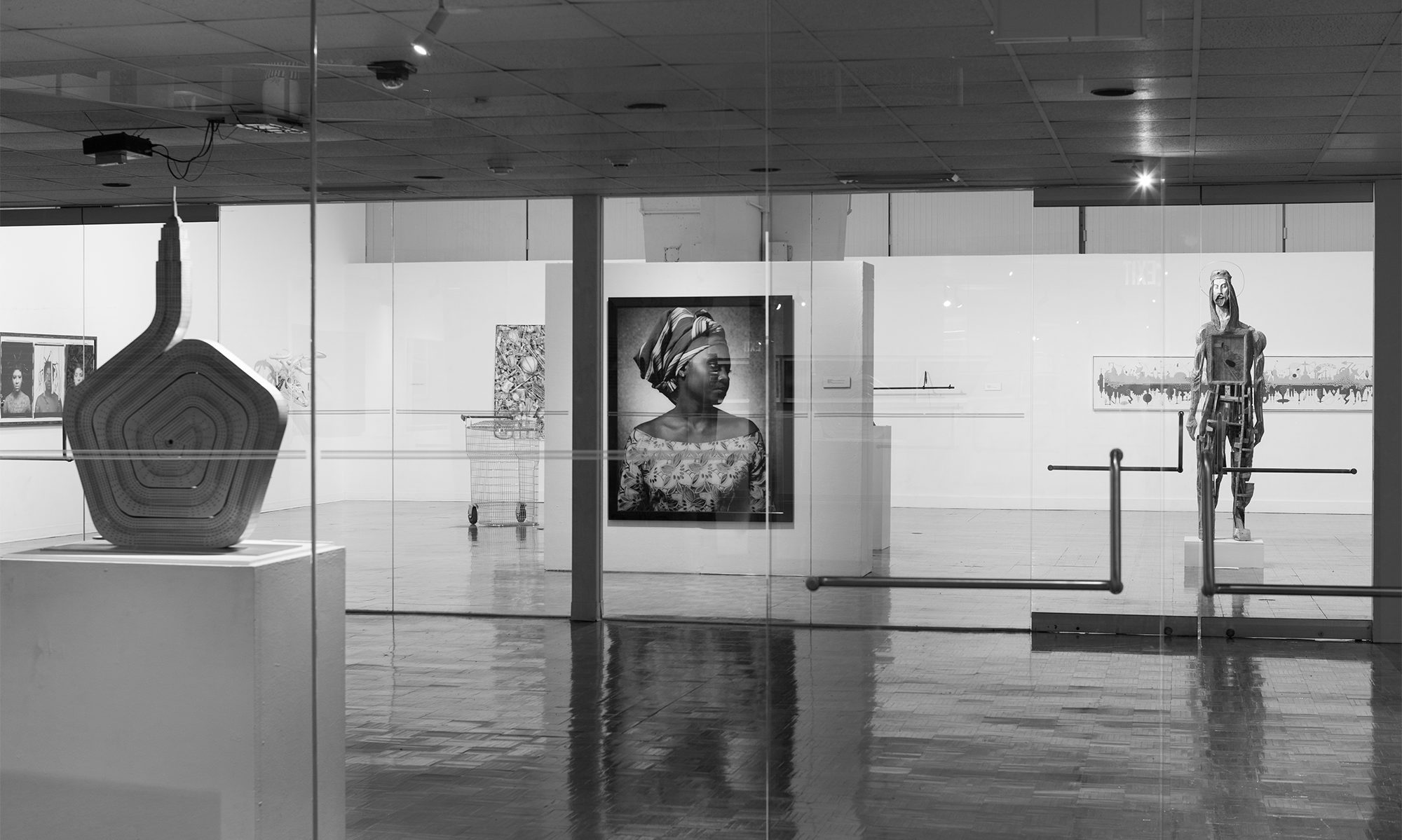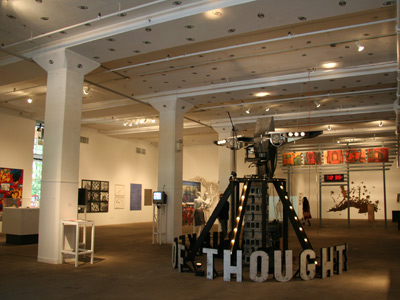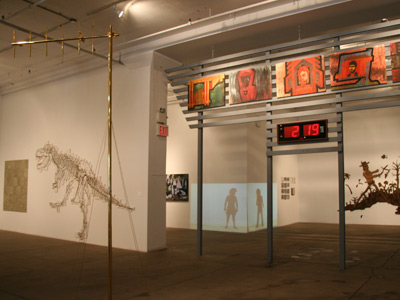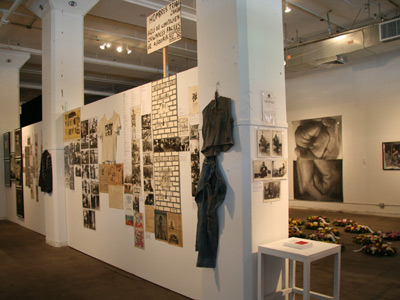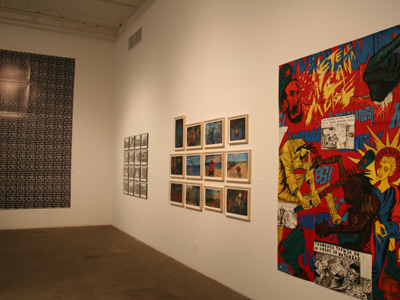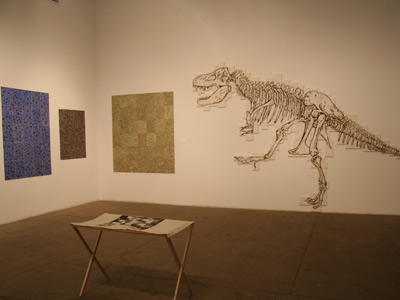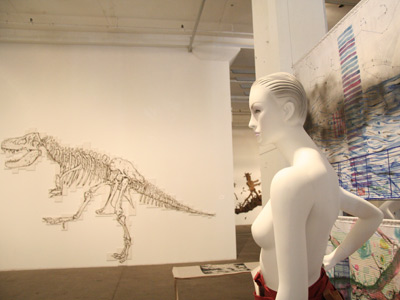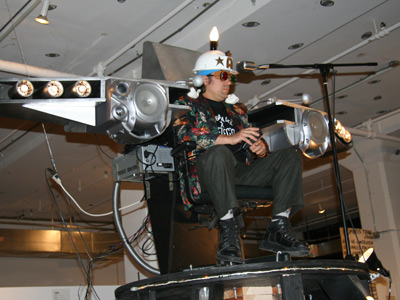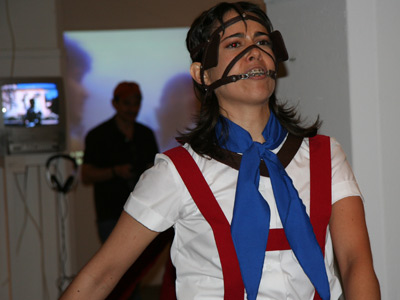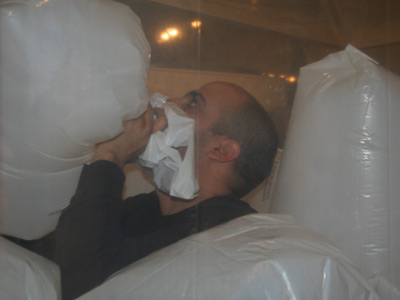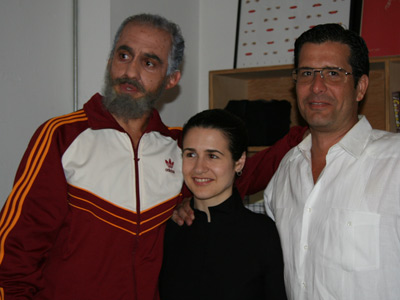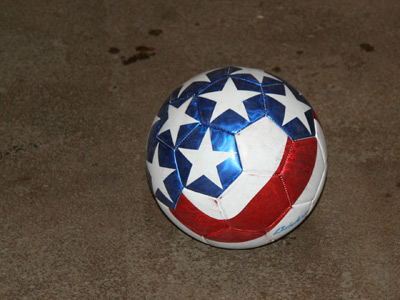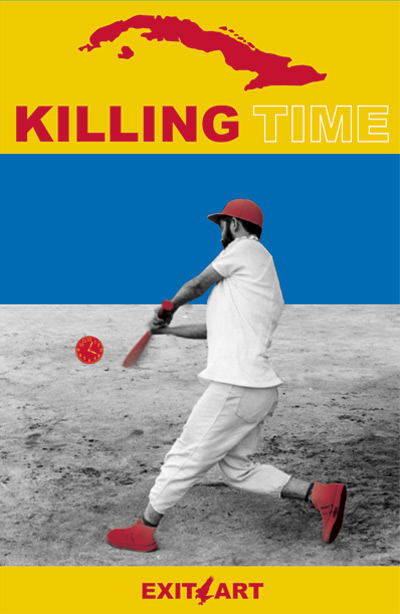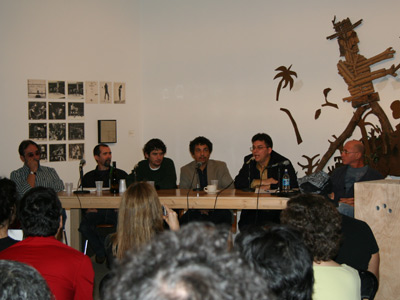Exit Art
May 12 – July 28, 2007
Opening Reception: May 12, 2007
This project was co-curated by Elvis Fuentes, Glexis Novoa and Yuneikys Villalonga.
ABTV | Francis Acea | Pavel Acosta | Jairo Alfonso | Alonso Mateo | Alexandre Arrechea | Arte Calle | Juan Pablo Ballester | James Bonachea | Saidel Brito | Tania Bruguera | La Campana Group | María Magdalena Campos Pons | Yoan Capote | Consuelo Castañeda | Nilo Castillo | Sandra Ceballos & Espacio Aglutinador | Raúl Cordero | Jorge Crespo | Arturo Cuenca | Ángel Delgado | Felipe Dulzaides | Dupp Gallery | Ofill Echevarría | El Soca & Fabian | Enema Collective | Henry Eric | Antonio Eligio Fernández “Tonel” | Coco Fusco | Carlos Garaicoa | Fernando García | Fidel García | Alejandro González | Juan-Si González | Abdel Hernández | Hexágono Team | Charles Juhasz-Alvarado | Hamlet Labastida | Tony Labat | Francisco Lastra Adorno | Glenda León | Alejandro López | Rafael López Ramos | Janler Méndez | Manuel Mendive | Beverly Mojena | Maritza Molina | Glexis Novoa | Antonio Núñez | Ernesto Oroza | Cristina Padura | Gustavo Pérez Monzón | Alain Pino | Humberto Planas | Segundo Planes | Provisional Group | Aldo Menéndez | Aldo Damián Menéndez | Hubert Moreno | Ramón Moya | Carlos Pérez Vidal | Ernesto Pujol | Rigoberto Quintana | Rubert Quintana | Ángel Ricardo Ríos | Ritual Art-De Group | Fernando Rodríguez & Francisco de la Cal | René Francisco Rodríguez | Carlos Rodríguez Cárdenas | Joel Rojas | Yali Romagoza | Adalberto Roque | Lázaro Saavedra | George Sánchez-Calderón | Leandro Soto | Ezequiel Suárez | Todos Estrellas | José Toirac & Tanya Angulo | José Ángel Toirac | César Trasobares | Hárold Vazquez | Liudmila Velasco & Nelson Ramírez de Arellano | José Ángel Vincench | Ramón Williams | Ramón Williams Jr.
*Music at the opening reception will be mixed live by Pablo Yglesias.
KILLING TIME focuses on the work of over sixty contemporary Cuban artists that have contributed to the Cuban art renaissance since the 1980s, and whose work approaches the subject of time, process and transition in Cuba through different media, including performance, installation, photography, video, drawing, painting, sculpture and ephemera.
 This exhibition provides a timely context for Cuban artists whose work has had little or no exposure in the United States. A special section of the exhibition features the origins of performance art in Cuba through original works and documentation materials, never presented in the United States. Many of the artists in KILLING TIME have metaphorically recorded some of the tensions in the cultural, social and political landscape of the past two decades, and have often been dismissed by the official discourse on the Island or stereotyped by narrow conceptions of identity.
This exhibition provides a timely context for Cuban artists whose work has had little or no exposure in the United States. A special section of the exhibition features the origins of performance art in Cuba through original works and documentation materials, never presented in the United States. Many of the artists in KILLING TIME have metaphorically recorded some of the tensions in the cultural, social and political landscape of the past two decades, and have often been dismissed by the official discourse on the Island or stereotyped by narrow conceptions of identity.
This grouping of diverse and multi-media works includes Cuban artists from the Island and abroad. Key sections in the exhibition as identified by the curators are: Time Patterns, Productive Journey vs. Free Time, From Diversion to Subversion, Archaeology of Utopia, and are particularly expressed through the personal experiences of the artists within the context of the Revolution, as well as the migration experience. In the words of the curators; “The Revolution has been a symbolic intervention on Cuban time. In return, time has shaped discourses of and on the Cuban Revolution.”
KILLING TIME features many of the influential protagonists of early contemporary Cuban art. Leandro Soto and conceptualist Gustavo Pérez Monzón were presented in Volumen I, the groundbreaking Havana exhibition at the Centro International de Arte in 1981, which gave stage to artists working in mediums such as video, performance and installation. María Magdalena Campos Pons, Carlos Rodríguez Cárdenas, Glexis Novoa, Segundo Planes, and Lázaro Saavedra were featured in KUBA O.K. a major exhibition at the Dusseldorf Kunsthalle in 1990 which opened the door to Cuban art in Europe. Performance groups like Art.De., Arte Calle, La Campana, and Provisional and artist/performers Consuelo Castañeda, Antonio Eligio Fernández (Tonel), Arturo Cuenca, Alonso Mateo, Juan-Sí González, and Francisco Lastra, round out the 1980s with the famous Baseball Game (1989), in which artists, critics and curators, tired of official censorship, devoted themselves to Cuba’s national pastime.
Saavedra and René Francisco Rodríguez are the link between this innovative generation and the next, as they taught at the Havana Institute of Art and were instrumental in the endurance of experimentation and in the foundation of groups ENEMA and DUPP. Also key are Tania Bruguera and Sandra Ceballos, who run alternative spaces and gave opportunity to experimental projects of emerging artists. Among younger artists are Joel Rojas, Saidel Brito, Carlos Garaicoa, Glenda León, Beverly Mojena, El Soca & Fabian and Rubert Quintana. KILLING TIME also presents Ernesto Oroza’s collection of functional objects produced by ordinary people during the deepest economic crisis in recent Cuban history, the so-called Special Period of 1990s. Tony Labat, César Trasobares, Coco Fusco, George Sánchez-Calderón, Charles Juhasz-Alvarado and other artists form a strong counterpart of this innovative spirit in the art of Cuban exile.
